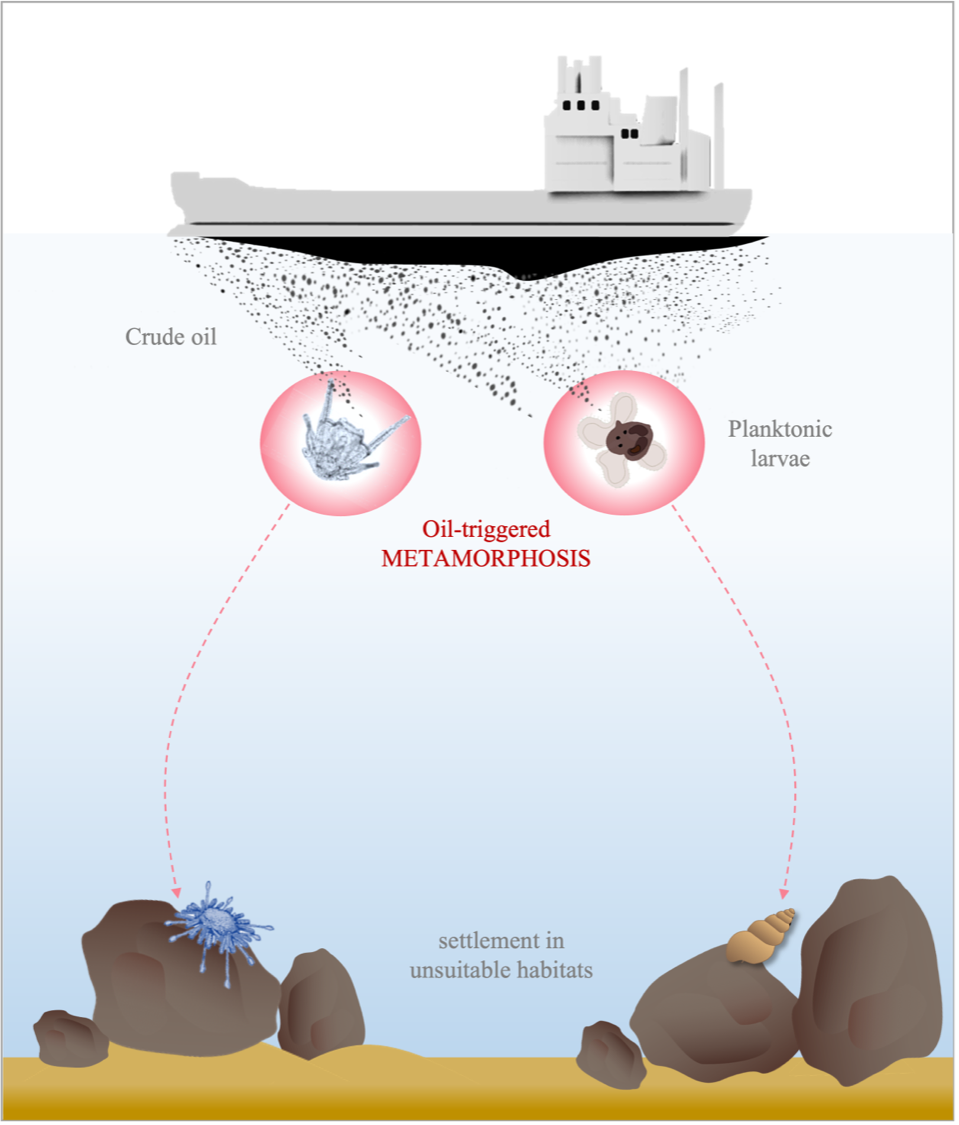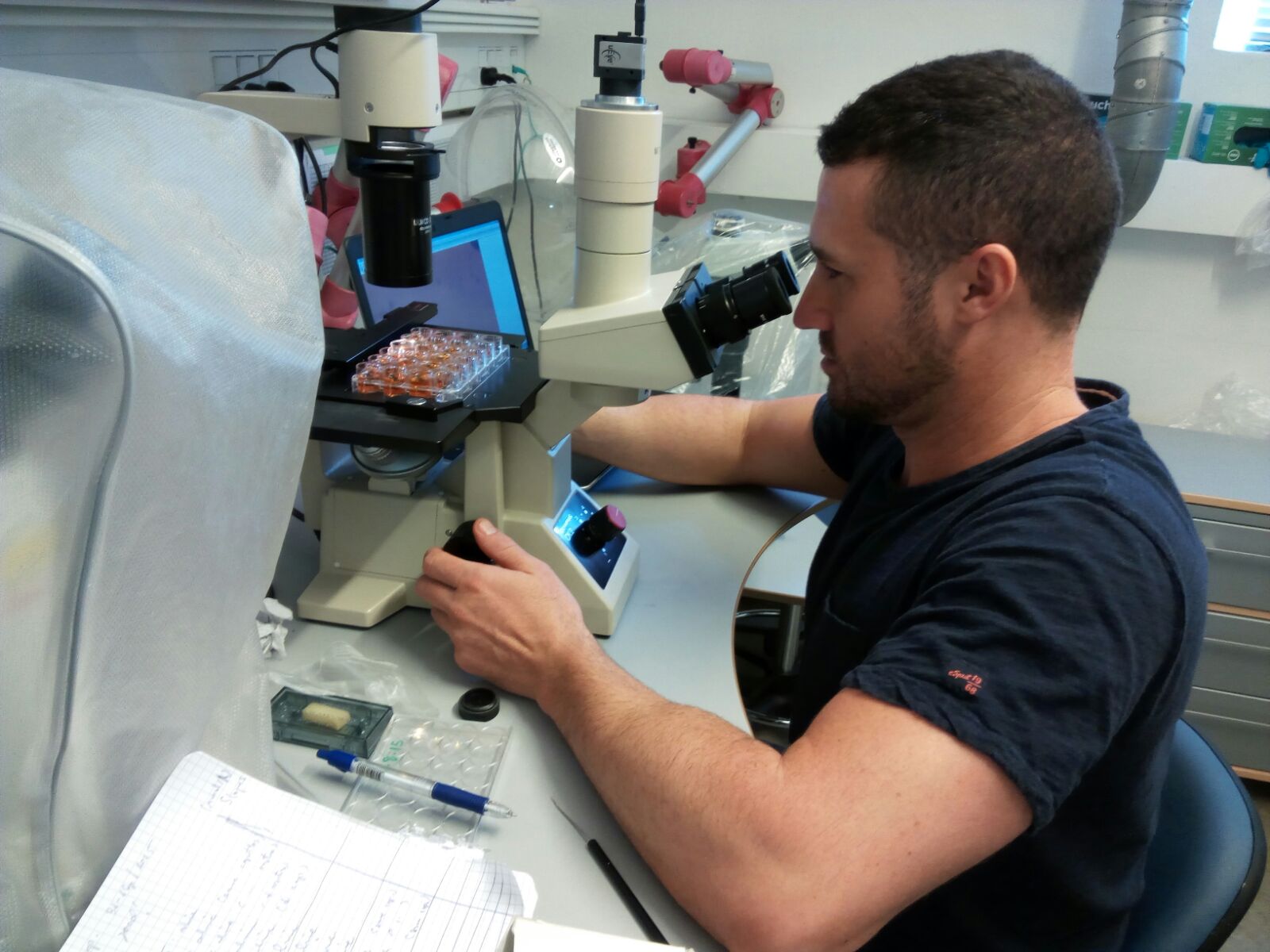Rodrigo Almeda, from the ECOAQUA institute, leads an international study that has found for the first time this oil effect on the fauna of the sea
Rodrigo Almeda, a Ramón y Cajal researcher attached to the Department of Biology and the University Institute for Research in Sustainable Aquaculture and Marine Ecosystems (ECOAQUA, EOMAR group), is leading a research project together with other research centers (the Technical Universities of Denmark and Crete, the Hellenic Center for Marine Research and the University of Oregon), through which he has managed to determine, for the first time, how oil and its combustion residues can induce metamorphosis in marine invertebrate larvae.
According to the conclusions of the study, these substances can rapidly induce the biological processes related to the change that these animals experience in their development, altering the natural cycle and timing of metamorphosis. Therefore, this metamorphosis, artificially triggered by the chemical compounds present in the oil, has the potential to negatively affect the survival and recruitment of marine invertebrates, deprived of the ability to select a suitable place for their settlement and development.
Up to 80% of marine invertebrates have planktonic larvae that play a key role in benthic recruitment (incorporation and survival of bottom-associated animals) and the functioning of marine ecosystems. Experimental studies, carried out by exposure to contaminants in microcosms and determination by microscopy, showed that the induction of metamorphosis caused by oil occurred in larvae of sea urchins (echinoderms) and marine snails (gastropods), indicating that this effect is not limited to a specific group of invertebrates, but could be generalized. Some of these invertebrate species, such as sea urchins, are foundational species that influence other species and modulate the type of coastal ecosystem.
This effect of oil on the life cycle of invertebrates had not been observed until now and the researchers warn of the profound impact this has on marine invertebrate populations and the biodiversity of coastal ecosystems, both in the Canary Islands and globally, given the increased pollution of coastlines by oil spills, petrochemical derivatives and other waste.
The results of this work have been published in an article in the high-impact journal "Environmental Science and Technology", and the research has also been highlighted in Chemical & Engineering News (C&EN News), an international portal specialized in scientific information in the areas of Chemistry and Engineering.



